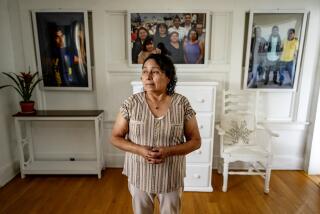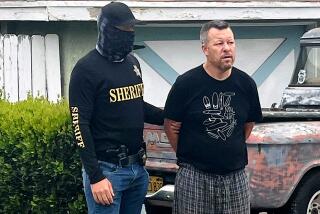Trial in Oxnard killing of gay teen will use Santa Barbara County jurors
- Share via
Intense news coverage in Ventura County of the shooting death of gay teenager Lawrence “Larry” King prompted a judge Monday to order that the jurors be drawn from neighboring Santa Barbara County.
Superior Court Judge Charles Campbell agreed with the defense’s contention that Ventura County residents have been so saturated with press coverage of the sensational classroom slaying that 16-year-old defendant Brandon McInerney’s right to a fair trial was threatened.
But while jurors will be selected from southern Santa Barbara County, the trial will stay in Ventura County Superior Court, Campbell said at a Monday hearing. The judge said he would provide more details about the logistics of the jury selection at a Thursday briefing.
Prosecutor Maeve Fox said it was her suggestion that jurors be drawn from the neighboring county.
“It was a good resolution,” she said.
Defense attorneys Scott Wippert and Robyn Bramson were unavailable for comment.
McInerney had just turned 14 when he allegedly shot King execution-style in a computer class at E.O. Green Junior High School in Oxnard in February 2008. Student witnesses said King had expressed a romantic interest in McInerney, who was humiliated by the attention. The boys had verbally sparred in the days before the shooting.
The case has garnered international attention from gay and lesbian groups, which see King as a victim of homophobia. McInerney’s defenders say that school officials and the boys’ parents should have done more to quell tensions between them.
McInerney is being tried as an adult on a first-degree murder charge with a hate crime enhancement and could face 53 years to life in prison if convicted.
While the saga has generated numerous articles in national publications, it has received heaviest coverage in the Ventura County Star, the local newspaper. Every twist and turn in the case has been covered by the paper, including long profiles of both the victim and the defendant and their troubled families.
Each story brings a fresh round of blog comments to the Star’s website, with a majority registering negative opinions about McInerney.
Veteran defense attorneys said Campbell’s ruling gives McInerney the chance to defend himself before jurors who have heard relatively little about the case. Potential jurors in Santa Barbara County haven’t been bombarded with a stream of news stories since the shooting, as has been the case in Ventura County, legal experts said.
“If anything, he is back to a theoretically level playing field,” said Steve Meister, a Los Angeles defense attorney and a former prosecutor.
A clean slate will give McInerney the chance to explain the underlying motivations for his alleged crime, said James E. Blatt, who represented defendant Jesse James Hollywood in another high-profile murder case.
“I don’t think it’s an issue of who did it — that’s clear,” Blatt said. . “The issue is why did he do it and the pressures he was under when he did it.”
Meister and Blatt had differing opinions on which jury would lend a more sympathetic ear to McInerney. Both counties are mid-sized, with largely white, educated and prosperous populations.
Blatt, who tried the Hollywood case in a Santa Barbara courthouse, said the presence of UC Santa Barbara and major artistic and cultural institutions in Santa Barbara gives its jury pool a more liberal bent.
“It’s probably better for the defense than Ventura County, which is very conservative,” Blatt said.
Meister, however, said Ventura County’s reputation for “hanging juries” is undeserved. He has tried several criminal cases in the county and has been impressed with the fairness of its juries, Meister said.
“Santa Barbara might have a little higher per-capita income,” he said. “In Ventura County, you wouldn’t believe how many KCRW listeners were on my juries.”
Attorneys have estimated that the case will take about five weeks to try. Wippert and Bramson have previously tried to remove Campbell from the case, declaring that he was pro-prosecution. Two appellate courts have denied their request.
catherine.saillant@latimes.com
More to Read
Sign up for Essential California
The most important California stories and recommendations in your inbox every morning.
You may occasionally receive promotional content from the Los Angeles Times.














